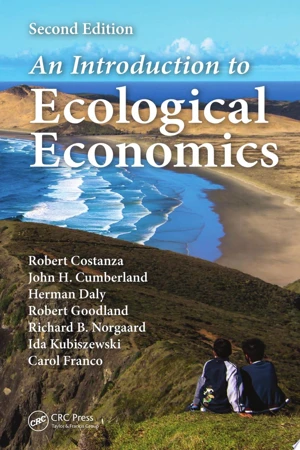An Introduction to Ecological Economics, Second Edition

Blurb
From Empty-World Economics to Full-World Economics
Ecological economics explores new ways of thinking about how we manage our lives and our planet to achieve a sustainable, equitable, and prosperous future. Ecological economics extends and integrates the study and management of both "nature's household" and "humankind's household"—An Introduction to Ecological Economics, Second Edition, the first update and expansion of this classic text in 15 years, describes new approaches to achieving a sustainable and desirable human presence on Earth. Written by the top experts in the field, it addresses the necessity for an innovative approach to integrated environmental, social, and economic analysis and management, and describes policies aimed at achieving our shared goals.
Demands a Departure from Business as Usual
The book begins with a description of prevailing interdependent environmental, economic, and social issues and their underlying causes, and offers guidance on designing policies and instruments capable of adequately coping with these problems. It documents the historical development of the disciplines of economics and ecology, and explores how they have evolved so differently from a shared conceptual base. Structured into four sections, it also presents various ideas and models in their proper chronological context, details the fundamental principles of ecological economics, and outlines prospects for the future.
What’s New in the Second Edition:
- Includes several new pieces and updates in each section
- Adds a series of independently authored "boxes" to expand and update information in the current text
- Addresses the historical development of economics and ecology and the recent progress in integrating the study of humans and the rest of nature
- Covers the basic concepts and applications of ecological economics in language accessible to a broad audience
An Introduction to Ecological Economics, Second Edition can be used in an introductory undergraduate or graduate course; requires no prior knowledge of mathematics, economics, or ecology; provides a unified understanding of natural and human-dominated ecosystems; and reintegrates the market economy within society and the rest of nature.

